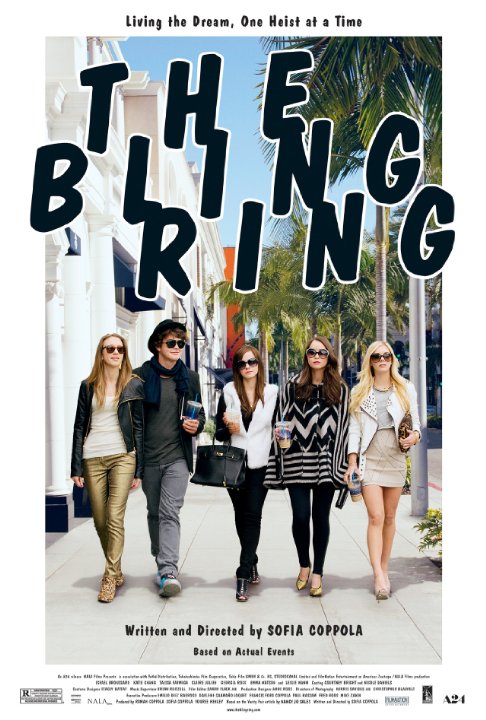
Real estate crash came 20 years
early in ‘House of Sand and Fog’
Pride destroys, it is said. But without pride, what are we? A collection of values matching the lowest common denominator, or worse, perhaps. Ideally, there is balance, and our values would keep us grounded. But fear and insecurity are not to be taken lightly. The conclusion of “House of Sand and Fog” is what happens when two people care more about a piece of property than life itself.
The legal battle for the home is unusually good conflict. Seemingly such drama would take place between bored lawyers and bureaucrats. Smartly, Vadim Perelman, in his directing and screenwriting debut, offers little of that, referring only briefly to the real estate lawyer and ignoring the county recorder of deeds office entirely. This is a moral conflict between human beings, not a legal one between bureaucrats.
Ben Kingsley is an undeniable great. Jennifer Connelly had come into her own by this time. Few critics probably would put her in the same category, but each boasts an Oscar … and in this showdown, she matches or even exceeds his screen presence. He may be as unyielding as fiberglass, but she produces an extreme vulnerability to her character that is not typically sexy, but pitiable.
Perelman presents two complete strangers, Kathy and Col. Behrani, so different they even hail from opposite sides of the globe. He’s a past-middle-age father; she’s a divorced, late 20s or early 30s woman with no kids. He’s smart, savvy, disciplined, accustomed to commanding others, an extraordinarily hard worker. She is lazy, undisciplined, has no job, is accustomed to being dumped on ... and is so dumb it borders on criminal, if not evil.
Very subtly, though, these two apparent polar opposites share a bond, slowly developed, that’s far stronger than their differences, and this is a credit to the screenwriting: each has been the guardian of the family home and lost it ... and fears family shame above all else.
Each also blames the system for their debacle, and to some extent they are right. Behrani was on the losing side when the ayatollah toppled the shah. Kathy was the victim of a dreaded county taxing error — the idea that a woman this dumb could be running a business from her home is so farfetched, it adds a wry bit of humor and enhances the perception she was victimized. But in fact, both are more than just a little complicit in their own problems.
Behrani admits to his son he bought fighter jets for the shah. He made a conscious decision to support the losing side and must live with the outcome. It is shown that once in America, he originally had plenty of money with which to buy a home similar to Kathy’s or even much more valuable, but most of that money is gone, spent on his daughter’s wedding and his wife’s desire for a ridiculously upscale hotel suite. At one point he reassures his wife he will make gobs of money from selling Kathy’s house and will then get something even better ... yet after quitting his job, how does he expect to do so? And what is wrong with the home they have just purchased, which has a view of the water he covets so much?
Kathy is so strung out she doesn’t even bother to open her mail for months. Though stunningly beautiful, she has only one friend, whom she quickly abandons, and appears to have never worked a day in her life. She is not disabled, not drunk, not high, not mentally retarded ... just lazy, and overwhelmingly dumb.
Both characters in this doppelganger feel the need to deceive their relatives. Behrani has lied about where he works. Kathy won’t tell the truth to her mother or brother. Each is forced, at one point or another, to shave in a public restroom because they are unable to do so at home.
And both are done in by the frailties of those they associate with. Behrani has squandered a small fortune by indulging the two women in his life; his daughter, for whose wedding he paid a dowry that isn’t required in America, and his wife, for whom he has paid gobs of money to live in a hotel suite because she refuses to live in anything less than the luxury of their homeland. Kathy, meanwhile, does not realize Lester’s heavy-handed, emotional actions are going to lead to serious consequences that will make her uncomfortable. This is adequately foreshadowed when she and Lester are becoming a couple in a nice restaurant, and Lester informs her of how he has no trouble sleeping after breaking the law to do the “right thing,” especially when the alleged perpetrator is a “little runt.” Why doesn’t it occur to Kathy he might have similar tactics in store for Col. Behrani? She is not only dumb, but thinking about the wine glass then in front of her and noting, despite her history of alcoholism, “wine is no trouble for me.”
Behrani is blatantly sexist. Kathy hints at being maybe a little bit xenophobic. Would Behrani be less inflexible if Kathy were a man, or would Kathy have a greater appreciation for her rival’s motives if he weren’t a foreigner? That is left unanswered.
The conclusion, unfortunately, resembles typical Hollywood schlock. But dismissing it doesn’t do the film justice. There is an intricate, well-done sequence near the end that makes the conclusion not only plausible, but powerful.
First, the police actually take Behrani’s complaint against Lester very seriously. This does not often happen in movies and is a pleasant twist. The complaint is taken so seriously, they summon Lester right away ... which then prevents him from returning to Kathy as he promised and gives him a motive for seeking out Behrani that night.
Meanwhile, the melodrama that is Kathy’s life has finally come full circle. She is trying desperately to cling to the two things that matter to her — the house and Lester — but each is officially the property of others, and Kathy knows it. When it becomes apparent at the same time that she won’t get either one of them back, she opts to take her own life, but is even too incompetent to do that.
Here Behrani makes his first tactical mistake. He chooses to shelter Kathy in his home rather than calling the police or an ambulance. This brings the wrath of Lester and sets the stage for the catastrophic ending, when Behrani makes his second mistake: concocting an unnecessary hard-line offer to end Lester’s siege and give Kathy $40,000.
Is Behrani playing hardball only because he believes his complaint against Lester has gone unaddressed by police? Is he afraid that if he simply does what Lester demanded the night before with a gun at his head, the county will uphold the sale nonetheless? Again, we are left to wonder.
For her part, when Kathy realizes in the morning of the fateful day that Lester has been conducting a kidnapping, it should become obvious they are in big trouble and there is no way she can legally get her home back under such circumstances; if anything she’ll go to jail. Yet she allows Lester to easily brush aside her only-mild skepticism that Behrani “won’t do it.”
Whenever a gun appears, this is the type of scene that follows. For the first time we see the latent ethnic pride of the son that has been concealed by his typical American teenage demeanor. Why couldn’t Lester have shot them both and be hung out to dry? Because the point is that only their pride can do them in, not a buffoon like Lester.
Many great movies are obligated to leave things open-ended. This cannot be one of them. Both Kathy and Behrani have staked their lives on this house. They cannot co-own it or cohabitate or arrange a profit-sharing transaction. When the house’s outcome is decided, the loser cannot walk away and live with relatives in Nebraska, for that would undermine the drama and negate all that the house has stood for in one hour, 55 minutes.
Clearly, there must be closure. Weaker films would spare the people, but not the house. Notice how this one cleverly hints at that option — Kathy fills up a gasoline container — then spurns it. This conflict is about far more than a house. It’s about the fate of two people. Only one is going to make it, but the price of surviving will be immeasurably higher than anyone is willing to pay.
4 stars
(June 2004, updated November 2008)
“House of Sand and Fog” (2003)
Starring Jennifer Connelly as Kathy ♦ Ben Kingsley as Behrani ♦ Ron Eldard as Lester ♦ Frances Fisher as Connie Walsh ♦ Kim Dickens as Carol Burdon ♦ Shohreh Aghdashloo as Nadi ♦ Jonathan Ahdout as Esmail ♦ Navi Rawat as Soraya ♦ Carlos Gómez as Lt. Alvarez ♦ Kia Jam as Ali ♦ Jaleh Modjallal as Yasmin ♦ Samira Damavandi as Little Soraya ♦ Matthew Simonian as Little Esmail ♦ Namrata S. Gujral-Cooper as Wedding Guest ♦ Al Faris as Wedding Guest ♦ Mark Chaet as Wedding Guest ♦ Marco Rodriguez as Mendez ♦ Al Rodrigo as Torez ♦ Aki Aleong as Tran ♦ Joyce Kurtz as Kathy’s Mom ♦ Scott N. Stevens as County Official ♦ Ken Kerman as Locksmith ♦ Scott Kinworthy as Deputy Trainee ♦ Tom Benick as Hotel Security ♦ Samuel Hart as Elevator Man ♦ Jackie Adhout as Elevator Woman ♦ Spencer Garrett as Auctioneer ♦ Cooper Thornton as Gary ♦ Isabelle James as Teenage Girl ♦ Bonita Friedericy as Motel Manager ♦ David Carrera as Carpenter ♦ Michael Papajohn as Carpenter ♦ Joe Howard as Appraiser ♦ Aaron Frazier as Courier ♦ Dan Brinkle as Husband Buyer ♦ Yan Lin as Wife Buyer ♦ Andre Dubus III as Myers ♦ Max Jansen Weinstein as Nate ♦ Ashley Louise Edner as Bethany ♦ Ray Abruzzo as Frank ♦ Tom Reynolds as Gas Station Worker ♦ Jose Vasquez as Arresting Officer ♦ Matt Waite as Arresting Officer ♦ Pamela Shaddock as Nurse ♦ Frank Gallego as Prison Guard ♦ Karl Makinen as Officer at End ♦ Zoran Radanovich as Sergei ♦ Markus Baldwin as Young Husband ♦ Reed O’Garvin as Fat Man ♦ Dennison Samaroo as Doctor ♦ Elton Ahi as Wedding Singer ♦ Shani Rigsbee as Wedding Singer ♦ Andy Madadian as Wedding Singer ♦ Leslie Yeransian as Bridesmaid
Directed by: Vadim Perelman
Written by: Vadim Perelman
Written by: Shawn Lawrence Otto
Written by: Andre Dubus III (novel)
Producer: Michael London
Producer: Vadim Perelman
Co-producer: Shawn Lawrence Otto
Co-producer: Jeremiah Samuels
Associate producer: Chris Soldo
Executive producer: Nina R. Sadowsky
Executive producer: Stewart Till
Original music: James Horner
Cinematography: Roger Deakins
Editing: Lisa Zeno Churgin
Casting: Deborah Aquila, Tricia Wood
Production design: Maia Javan
Art direction: Drew Boughton
Set decoration: Gene Serdena
Costume design: Hala Bahmet
Makeup and hair: Judy Chin, Kathrine Gordon, Kris Evans, Betty Lou Skinner, Lori Rozman
Production supervisor: Gina Fortunato, Kevin Halloran
Post-production supervisor: Sven E. Fahlgren
Unit production manager: Jeremiah Samuels
Stunts: Scott Sproule, Wendi Bromley, Diana Lupo, Jewel Donohue, David Renaud, Greg Anthony, Craig Branham, Bud Davis, Chris Monberg, Chris O’Hara, Russell Solberg, Sonny Tipton, Jose L. Vasquez





